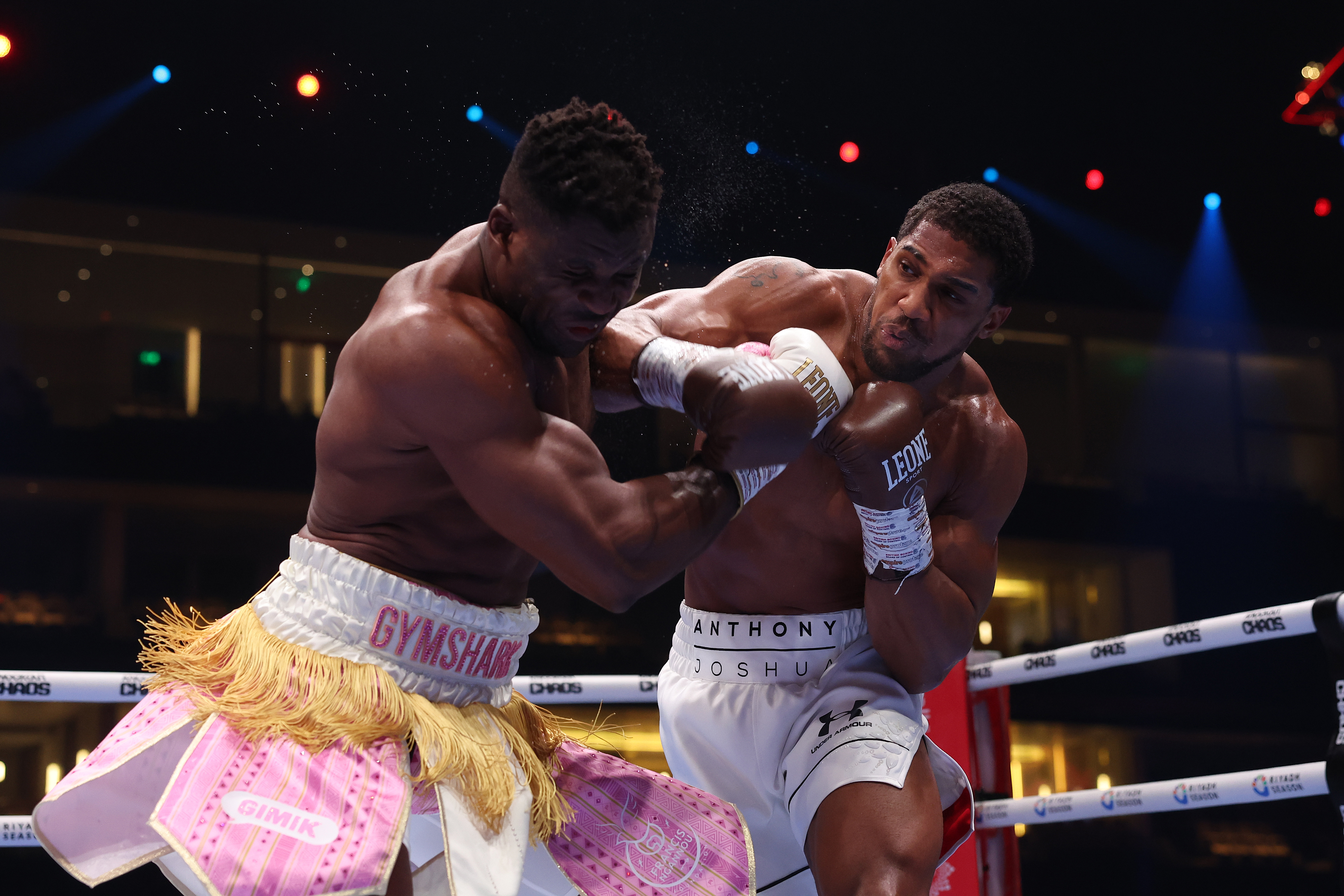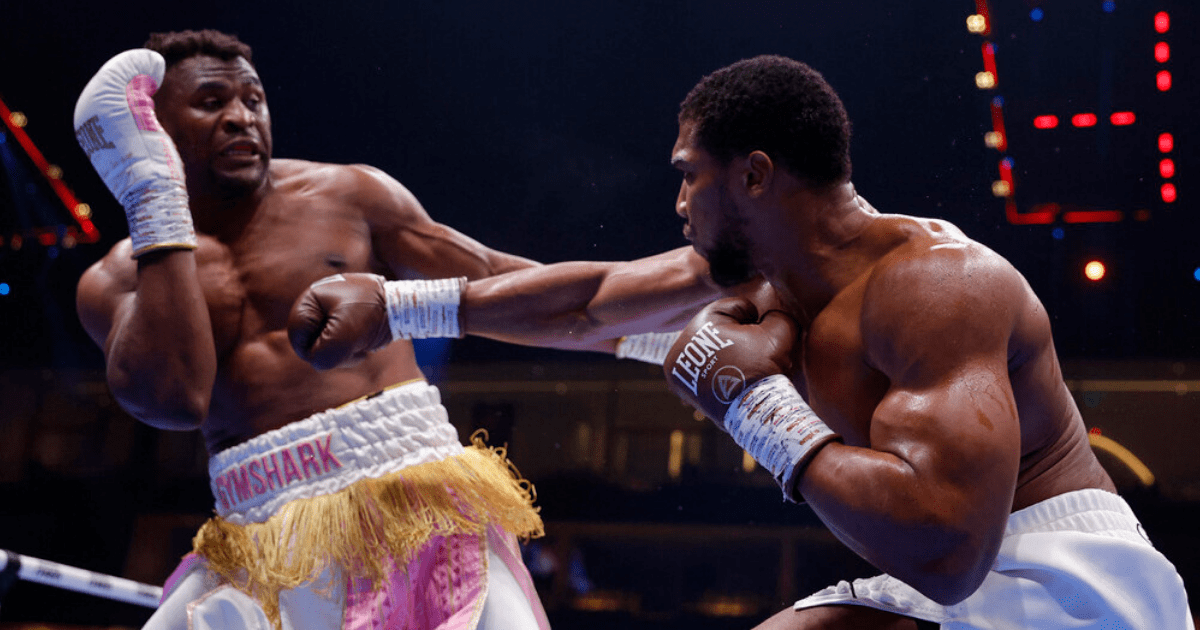Recognizing a Familiar Voice
Anthony Joshua humorously targeted MMA reporter Mike Bohn in the post-fight press conference following his knockout win over Francis Ngannou in Saudi Arabia.
Friendly Banter Between Joshua and Bohn
In a light-hearted exchange, Joshua teased Bohn about his pre-fight predictions and his outlet, MMA Junkie, showing his sharp memory and attention to detail.
Reflecting on the Playful Ribbing
Mike Bohn took Joshua's playful call-out in good spirits, acknowledging the moment on social media and showing respect for the banter.
Joshua's Victory and Future Plans
The win over Ngannou marked Joshua's third stoppage in his last four fights, signaling his continuous pursuit of improvement and success in the heavyweight division.

Frequently Asked Questions
What is needed to start training as a professional boxer?
For anyone to start training in professional boxing they must have a commitment to fitness, discipline and an open mind. Initial training involves mastering the fundamentals, including stance, footwork, punches, and defensive techniques. Joining a boxing gym that has experienced trainers with a thorough understanding of the nuances involved in professional competition is essential. Before they compete, novice boxers usually undergo a regimen of intense conditioning, drills and sparring.
What equipment is necessary for a new professional boxer?
If you are just starting out in professional boxing, essential equipment for beginners includes boxing gloves and hand wraps. Also, a mouthguard is necessary, as well as headgear, proper footwear, and a mouthguard. A heavy bag, speed bag, double-end bag, and other training aids are important for technical workouts. Use quality gear that is durable and offers protection. Poor equipment can lead to injury.
How do amateurs progress to professional boxers?
The transition from amateur boxing to professional requires a significant increase in training intensity and mental preparation. An amateur boxer is required to establish a record of success, usually by honing their skills at local and national contests. The key is to get a professional boxing certificate and work with managers and trainers that can guide you in your career and help secure professional bouts.
How important does physical conditioning play in professional Boxing?
Boxing is a sport that requires physical fitness. The sport demands that athletes have high levels in strength, speed, stamina, and agility. Professional boxers are required to follow a fitness regimen that includes anaerobic and aerobic exercises, resistance and strength training, as well as flexibility workouts. Boxers’ ability to perform and train effectively in the ring will be compromised if they do not have superior physical condition.
How long does it typically take to become a professional boxer?
The time to become professional boxer can differ greatly. It is dependent on the starting level of the boxer, his/her ability to adapt, and how well he/she trained. On average, it could take several years of dedicated training and successful amateur experience before one is ready to turn professional. However, some exceptional talents might advance more quickly, while others may need more time to develop.
What should someone look for in a boxing coach or trainer?
When looking for a trainer or boxing coach, it is important to look at their coaching style compatibility and experience. They should also have a good understanding of the technical and strategy aspects of boxing. A good trainer will emphasize safety, fitness, and personal development. It is also important to find a boxing coach who can motivate you and communicate effectively.
What are the dangers of professional boxing?
Like any contact sport, professional boxing is not without its risks. This includes acute injuries like cuts, bruises broken bones and head trauma as well as chronic conditions such as concussions or neurological disorders. The risks can be reduced with proper training, safety devices, and adhering to boxing rules, but never completely eliminated. Accepting and understanding these risks are essential to choosing to box professionally.
Statistics
- Nutrition experts emphasize that over 70% of a boxer’s diet should focus on carbohydrates and proteins for energy and recovery.
- Around 60% of professional boxers supplement their income with other activities or jobs, due to variability in fight earnings.
- Cardiovascular fitness is critical, with a focus on high intensity interval training, comprising up to 40% of a boxer’s conditioning program.
- The average age for boxers to turn professional is between 18 to 25 years, though many continue to compete well into their 30s and beyond.
- On average, a professional boxer spars between 100 to 200 rounds in preparation for a major fight.
- Approximately 80% of professional boxers start their career in the amateur ranks before transitioning to the professional level.
- Reports suggest that successful professional boxers can earn upwards of 50 times more than the median purse for entry-level professionals per fight.
External Links
boxingscene.com
boxingnews24.com
titleboxing.com
expertboxing.com
wbcboxing.com
teamusa.org
ibhof.com
How To
How to lose weight before a boxing match
Weight management before a fight in boxing requires discipline. Create a nutrition program that emphasizes hydration and complex carbohydrates while cutting down on foods high in sodium and fat. You can manipulate your water weight by increasing water intake a few weeks before the event and then reducing it gradually. Sauna sessions can be added if needed, and you should increase the intensity of your workouts to reduce extra weight. But always put safety first and avoid extreme weight loss methods.

